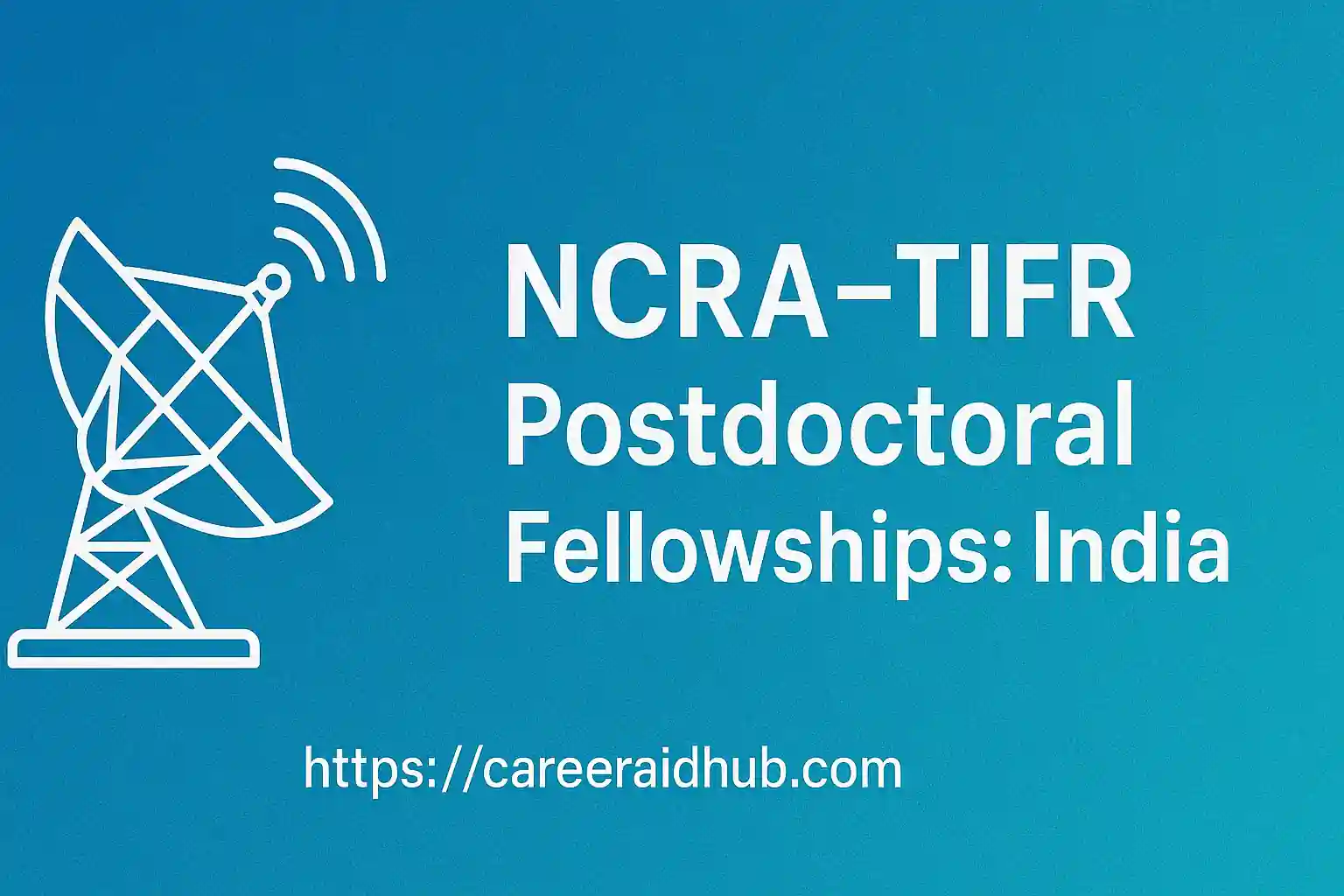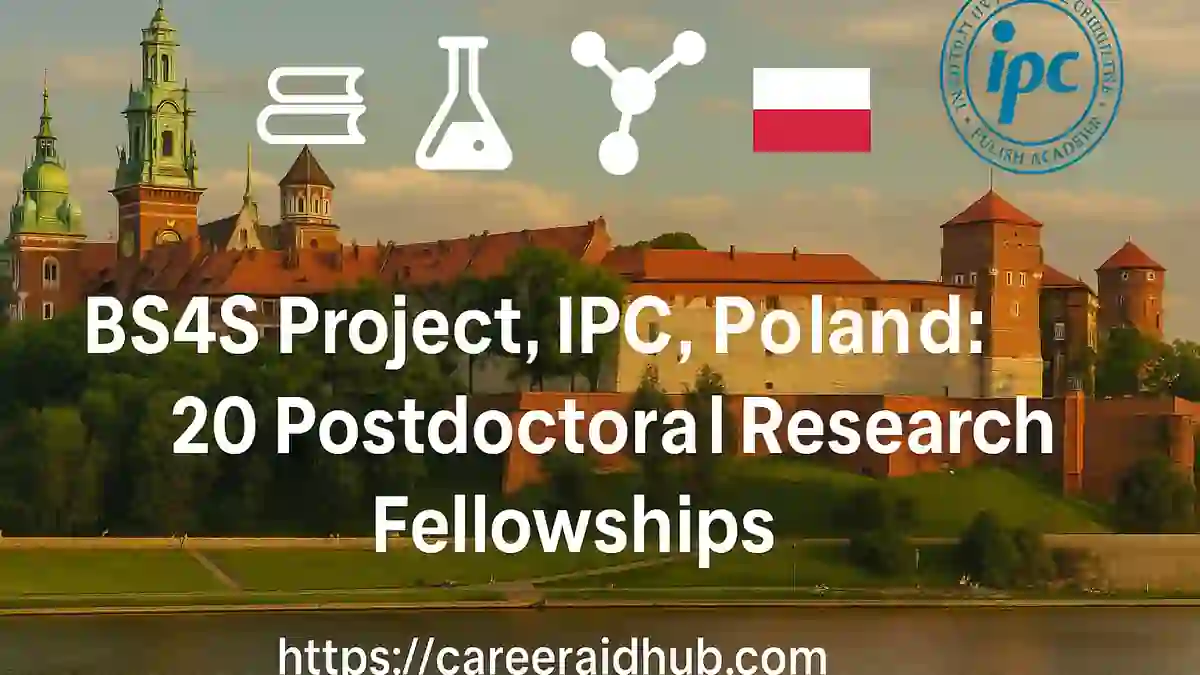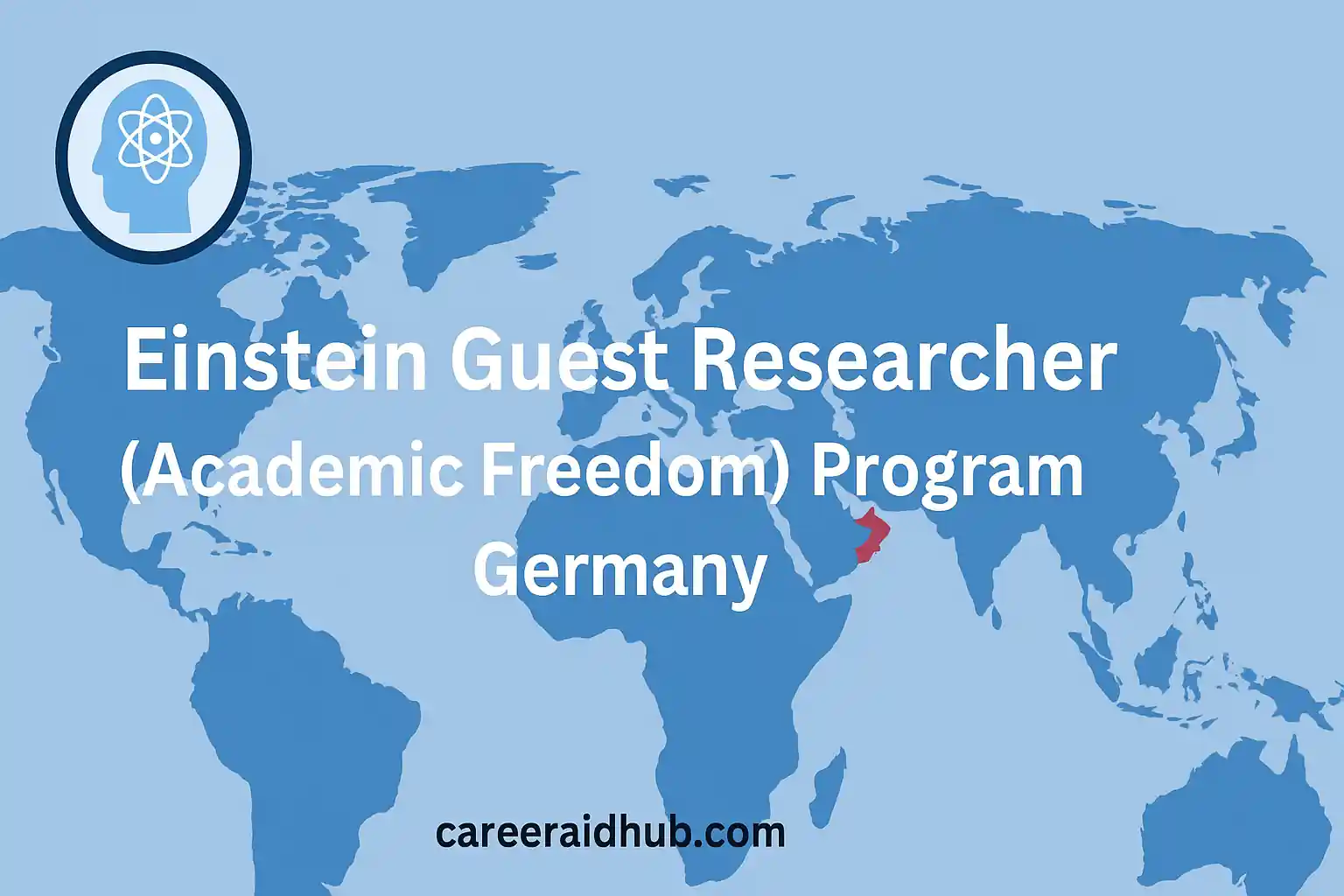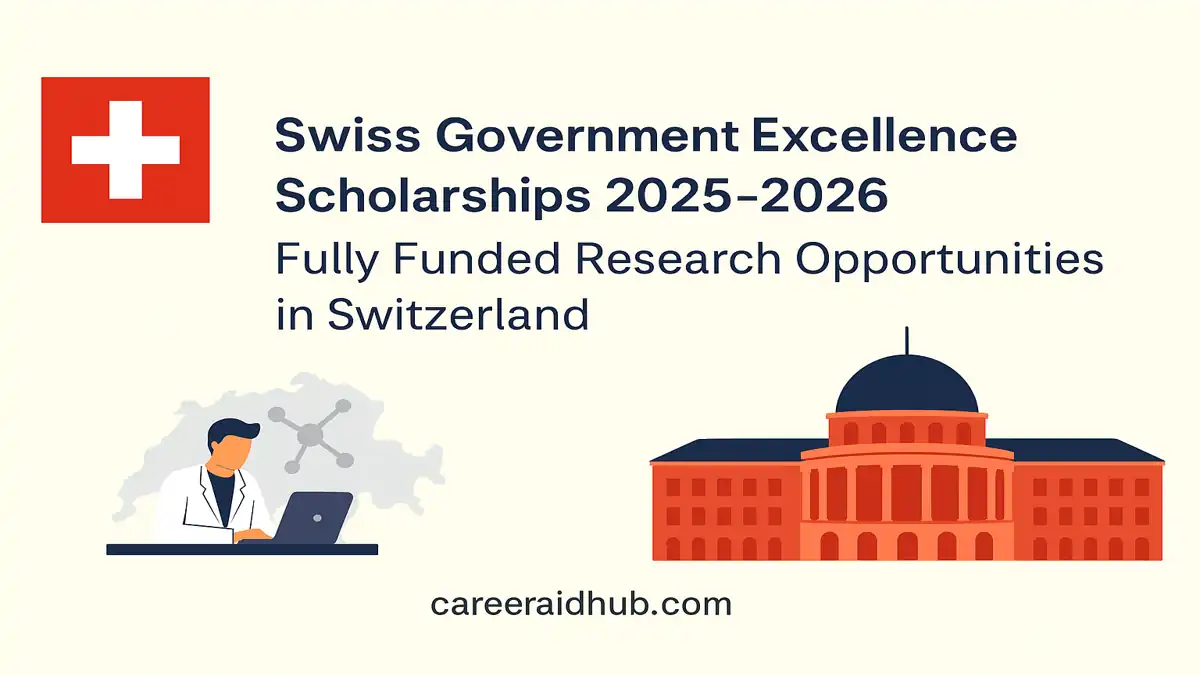Unlocking Global Research: CAPES-Humboldt Research Fellowship
In today’s interconnected academic world, research thrives on collaboration across borders. The CAPES-Humboldt Research Fellowship represents one of the most prestigious opportunities for Brazilian scholars to engage in cutting-edge research in Germany. Jointly funded by CAPES (Coordenação de Aperfeiçoamento de Pessoal de Nível Superior, Brazil) and the Alexander von Humboldt Foundation, the program enables talented postdoctoral and experienced researchers to expand their expertise and networks in a global environment.
The CAPES-Humboldt Research Fellowship offers Brazilian researchers an exceptional chance to pursue advanced studies in Germany. With strong financial support, flexible research periods, and access to a global alumni network, the fellowship empowers postdoctoral and senior scholars to build impactful careers while fostering long-term international collaborations in diverse academic fields.
What is the CAPES-Humboldt Research Fellowship?
Established in 2013, the CAPES-Humboldt Research Fellowship was created to promote bilateral academic exchange between Brazil and Germany. Its central mission is to strengthen international partnerships by providing Brazilian researchers with access to German institutions, advanced facilities, and high-level mentorship.
Fellowship Tracks
The program is designed for two distinct categories of researchers:
Postdoctoral Researchers: Early-career academics who have recently completed their PhD.
Experienced Researchers: Senior scholars with an established research portfolio, leadership roles, or substantial contributions to their field.
Both groups are encouraged to develop independent projects that go beyond previous doctoral research, fostering originality, interdisciplinarity, and innovation.
Who is Eligible?
Eligibility for the fellowship is specific and aims to ensure genuine bilateral collaboration.
Nationality and Residency Requirements
Applicants must be Brazilian nationals or permanent residents in Brazil.
German nationals are also eligible if they have lived and worked in Brazil continuously for at least five years.
At the time of application, candidates must be residing in Brazil and should not have stayed in Germany for more than six months during the last 18 months.
Academic Career Stage
Postdoctoral Track: Candidates should have completed their doctorate within the last four years. A track record of publications in peer-reviewed journals is essential.
Experienced Researchers: Eligible up to 12 years after earning their doctorate. Applicants are expected to show strong academic independence, proven leadership, and impactful publications.
Research Proposal and Host Institution
Applicants must secure a host in Germany who provides both mentorship and access to research facilities. The host’s statement is an integral part of the application. Importantly, proposals should not merely continue PhD research but instead demonstrate fresh perspectives, originality, and clear objectives.
Language Skills
none;">
For natural sciences and engineering, proficiency in either English or German is required.
For humanities, social sciences, and medicine, German proficiency may be essential depending on the research topic, though English is acceptable in many cases.
Documentation and Ethics
Applications must include a detailed CV, publication list, doctoral certificate, a five-page research outline, and the host’s confirmation of support. All projects must comply with the highest standards of scientific integrity and ethics.
What the Fellowship Offers
The CAPES-Humboldt Fellowship provides generous benefits designed to support both academic and personal needs.
Duration and Flexibility
Postdoctoral Fellows: Research stays of 6 to 24 months, which may be divided into up to three separate visits over three years.
Experienced Researchers: Research stays of 6 to 18 months, with similar flexibility to split the fellowship into shorter blocks.
Financial Support
Monthly stipend: €2,700 for postdocs and €3,200 for experienced researchers.
Additional allowances may include family support, travel grants, and contributions toward research costs at the host institution.
Preparation and Support Services
Fellows may participate in
pre-fellowship intensive German language courses.Guidance and mentoring are offered throughout the stay.
Host institutions can receive modest financial support to offset research costs or administrative overhead.
Alumni Network and Long-Term Engagement
After the fellowship, alumni remain connected through the Humboldt Foundation’s extensive network.
Opportunities for return fellowships, follow-up collaborations, and conferences continue to strengthen links with Germany.
Application Process and Key Dates
Applying to the fellowship is a multi-step process that requires careful planning.
Step 1: Finding a Host
Identify and secure a host researcher at a German institution who aligns with your project goals. This individual must provide a detailed host statement and confirm facility access.
Step 2: Preparing Documents
Essential documents include:
A concise CV (approx. 2 pages)
Research outline (up to 5 pages)
Complete and selected publication list
Doctoral certificate
Language proficiency certificate (if required)
Host’s statement of support
Step 3: Submission
Applications are submitted online through both CAPES and the Humboldt Foundation portals. The application cannot be completed until the host uploads their statement.
Step 4: Deadlines
Calls are announced twice a year in May and November.
Selection results are typically announced several months after submission.
Next cycle expected: May 2026 (exact dates will be updated soon).
Step 5: Selection Process
Applications are peer-reviewed by international experts.
Final decisions are made by a joint CAPES-Humboldt committee.
The success rate is around 20–25%, highlighting the competitiveness of the program.
Why the Fellowship Matters
The CAPES-Humboldt Fellowship is more than financial support; it is a transformative career milestone.
Professional Recognition
Earning the title of Humboldt Fellow adds significant prestige to a researcher’s academic profile. The fellowship demonstrates scholarly excellence and international competitiveness.
Networking Opportunities
Fellows gain access to Germany’s research infrastructure, leading laboratories, and a global peer community. These connections often translate into long-term collaborations and joint publications.
Skill Development
During their stay, fellows refine their research methodologies, gain exposure to new technologies, and broaden their interdisciplinary knowledge base.
Long-Term Institutional Impact
Returning fellows frequently play crucial roles in strengthening their home universities in Brazil by mentoring students, leading projects, and enhancing institutional visibility.
Tips for a Strong Application
A well-prepared application can significantly increase your chances of success.
Craft a Distinct Proposal: Ensure your research outline demonstrates originality and goes beyond your doctoral project.
Highlight Key Publications: Select publications that clearly show your contribution and relevance to the field.
Build a Strong Host Relationship: Secure a host who can provide meaningful mentorship and integrate you into ongoing projects.
Ensure Language Clarity: Write a clear, logically structured proposal, and provide proof of language proficiency if required.
Plan Realistically: Present a feasible timeline with defined objectives for each research stage.
Explain Career Interruptions: Address any breaks in your academic trajectory, such as parental leave or medical absences.
Common Challenges and How to Overcome Them
While the fellowship is highly rewarding, applicants often face challenges:
High Competition: With a success rate of 20–25%, careful preparation and a polished application are essential.
Securing a German Host: Networking early and leveraging professional contacts can help identify supportive hosts.
Publication Delays: Aim to submit applications with accepted or published key papers.
Language Barriers: If German is required, begin language preparation early or make use of the fellowship’s language course option.
Conclusion
The CAPES-Humboldt Research Fellowship stands out as a prestigious gateway for Brazilian researchers aspiring to expand their horizons in Germany. Beyond financial support, it nurtures professional growth, fosters innovation, and strengthens long-term collaborations between two dynamic academic systems. For early-career and experienced scholars alike, it represents a powerful step toward shaping impactful research careers and global partnerships.
Takeaway: If you meet the eligibility criteria, begin planning early—reach out to potential hosts, prepare your publications, and draft a compelling proposal. This fellowship can become the defining moment of your academic journey.
Program Snapshot
| Feature | Details |
|---|
| Program Name | CAPES-Humboldt Research Fellowship |
| Host Country | Germany |
| Funded By | CAPES (Brazil) and Alexander von Humboldt Foundation (Germany) |
| Duration | 6–24 months (Postdoc), 6–18 months (Experienced) |
| Study Mode | Full-time, in-person research |
| Eligibility | Brazilian nationals/permanent residents; postdocs ≤4 years, experienced ≤12 years post-PhD |
| Financial Support | €2,700/month (postdocs), €3,200/month (experienced) + allowances |
| Fields of Study | All disciplines (science, engineering, humanities, social sciences, medicine, law, etc.) |
| Deadline | May and November (next: May 2026 – exact date to be updated) |
| Official Website | CAPES-Humboldt Fellowship |
Frequently Asked Questions (FAQs)
What is the CAPES-Humboldt Research Fellowship?It is a bilateral program supporting Brazilian researchers to conduct funded research in Germany with flexible durations, financial benefits, and strong academic mentorship.
Who can apply for the CAPES-Humboldt Fellowship?Brazilian nationals or permanent residents, as well as German nationals living in Brazil for five years, can apply if they meet postdoctoral or experienced researcher requirements.
What academic stage is required for CAPES-Humboldt Fellowship applicants?Postdocs must have earned their PhD within four years, while experienced researchers are eligible up to twelve years after completing their doctorate.
How long is the CAPES-Humboldt Fellowship in Germany?Postdoctoral researchers may stay six to twenty-four months, while experienced researchers may stay six to eighteen months, with flexibility to split stays.
How much financial support does the fellowship provide?Postdocs receive around €2,700 monthly, while experienced researchers receive about €3,200 monthly, plus allowances for travel, family, and research-related expenses.
What documents are needed for the CAPES-Humboldt application?Applicants need a CV, research outline, publication list, doctoral certificate, host’s statement, and language certificate if required.
When are the CAPES-Humboldt Fellowship deadlines?Applications are accepted twice a year, in May and November. Exact dates vary each cycle and are announced by the foundation.
Do applicants need German language skills for the fellowship?English proficiency is sufficient for natural sciences, while humanities and social sciences may require German depending on the research project.
What is the CAPES-Humboldt Fellowship acceptance rate?The success rate is competitive, averaging between twenty and twenty-five percent of applicants based on recent selection cycles.
Why should Brazilian scholars apply for the CAPES-Humboldt Fellowship?The fellowship enhances research careers by offering international collaboration, funding, global recognition, and access to Germany’s extensive academic network.










